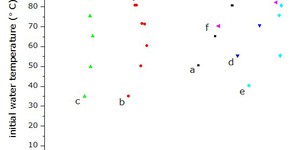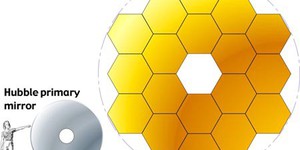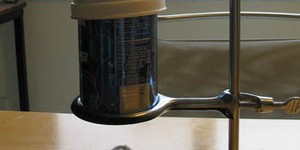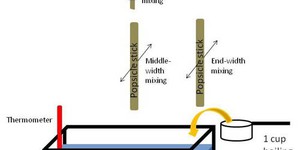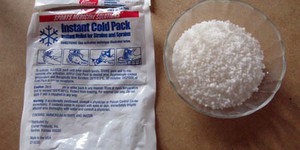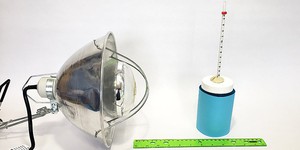Others Like “Are You in Hot Water? Use the Sun's Energy to Heat Your Own Water” (top 20 results)
|
This physics project seems like it should have an easy answer. Instead, it turns out to be a great illustration of why it is important to base scientific conclusions on the outcome of controlled experiments. Things don't always turn out as we expect!
Read more
Can you imagine designing and building a space telescope the size of a tennis court? Believe it or not, that is someone's job! Hundreds of engineers were involved in getting the James Webb Space Telescope (JWST) into space. This telescope has the potential to enable astronomers to see light from when the Universe was first formed. No one knows what amazing discoveries this might lead to, but already, JWST has delivered astounding deep space images that offer an unprecedented look at…
Read more
Can water remain liquid below its normal freezing point? If it does, that water is supercool(-ed). This project shows you a method for supercooling water. You can test water from different sources to see whether or not it can be supercooled.
Read more
Have you considered where the gasoline that your parents put in your car comes from and how long that source will last? The fuel that most vehicles use, gasoline, is a petroleum product. Petroleum is a fossil fuel and is a nonrenewable form of energy, meaning we use it faster than it is able to be reproduced. Burning fossil fuels also produces pollutants that might hurt our environment. Using a kind of fuel from a renewable source would help save Earth's natural resources and cut down on…
Read more
Big, puffy, cotton-like clouds, and the bubbles in a pot of boiling water may not seem like they have much in common, but they do—both are formed by a heat-transfer process called convection. Warmed gases and liquids rise, while cooler ones fall, creating currents and mixing things up. Whether making processed foods in a factory or making plastic or metal parts, knowing how to mix up a big tank of hot and cold liquids or gases quickly is important. Engineers must rely on experimentation…
Read more
You might know that we are able to get renewable energy from the Sun, the wind, and water, but did you know we can get renewable energy from Earth itself? The temperature inside of Earth can reach 9,000°F—that kind of heat can be used to make a lot of energy here on the surface! This source of energy is called geothermal energy and it is all about taking advantage of the heat within Earth. So try this science fair project out and find out how to use the heat that lies beneath your…
Read more
You're at the high school football game and it's getting pretty chilly as the sun goes down. You're determined to keep cheering for your team, but your hands are freezing—have you ever tried hand warmers? The chemistry within these little packets is pretty cool. Hand warmers provide a unique and fun way to study the chemistry of crystal formation and heat generation. By pressing a button in a pouch, which contains a supercooled solution, you start a rapid exothermic (heat-producing)…
Read more
Many people are surprised to learn that the season's we experience—winter, spring, summer and fall—have nothing to do with the distance of Earth from the Sun. In this science fair project, you will investigate how the temperature on Earth actually depends on the tilt of Earth's axis of rotation.
Read more
Instant cold packs are popular with coaches and parents for treating minor bumps and bruises. The instant cold packs are not pre-cooled—you just squeeze the cold pack and its starts to get cold. So how does it work? In this chemistry science fair project, you will investigate the chemical reaction that occurs in instant cold packs.
Read more
Why is it more comfortable to wear light-colored clothes on a hot summer day? Why wear a dark-colored jacket for early-morning fishing on a cold lake? How much difference can it make? Here's a project where you can quantify how much difference color makes for absorbing heat.
Read more
|
Explore Our Science Videos
Investigate Alien Genetics
How to Make Popping Boba: The Science of Spherification
Follow the Flow: 2017 Engineering Challenge


